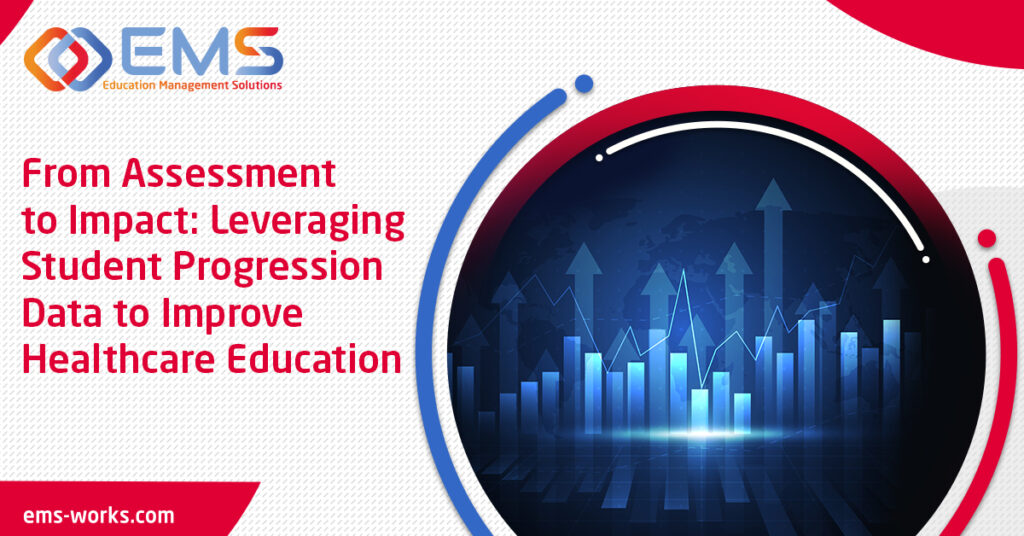Healthcare education professionals currently face unique challenges in ensuring students not only meet rigorous academic standards but also develop critical skills that align with clinical practice. With the advancement of data analytics and competency tracking tools, student progression data has emerged as a cornerstone in this data trail transformation.
In this blog post, we will explore how leveraging student data helps drive measurable impact in healthcare training, delivering better outcomes, and ensuring students are ready to excel in real-world settings.
Why Student Progression Data Matters in Healthcare Education
Healthcare education programs are increasingly shifting from traditional assessment models to competency-based learning frameworks. Unlike standard grades or test scores, competency-based education (CBE) emphasizes skills mastery and the ability to perform specific tasks in clinical environments. Tracking student progression is fundamental to this approach, providing actionable insights into whether learners are meeting the required benchmarks.
For example competency tracking systems allow educators to systematically monitor student performance and provide individualized feedback. This ensures gaps in learning are identified early, enabling personalized support and intervention. Ultimately, this approach promotes mastery, creates accountability, and enhances student preparedness for professional practice.
How Data Improves Decision-Making in Healthcare Education
Student progression data doesn’t just reflect academic performance—it serves as a powerful decision-making tool for educators, program administrators, and curriculum designers. Here are three ways that leveraging data drives organizational success:
1. Identifying Patterns of Success and Challenges
By analyzing trends across cohorts, educators can identify which areas consistently need improvement. For example, if students struggle to demonstrate competency in advanced procedural skills during simulations, this data can prompt curriculum adjustments that place greater emphasis on hands-on learning.
2. Optimizing Teaching Interventions
Healthcare education data systems make it easier to implement personalized learning initiatives. Competency and learner progression tracking platforms allow faculty to track real-time achievements and challenges for students, enabling tailored feedback and interventions. This adaptation leads to better graduate outcomes, as students feel more confident and prepared for clinical environments.
3. Supporting Accreditation and Compliance
Accreditation bodies increasingly demand data that demonstrates measurable outcomes and student progression. Automating these reporting processes by consolidating assessment data into transparent dashboards, saves faculty valuable time while maintaining compliance with accreditation requirements. This not only streamlines operations but also ensures programs remain competitive and evidence-based.
Challenges in Leveraging Student Progression Data
While data can transform healthcare education, implementation remains fraught with challenges. Common hurdles include:
1. Data Silos: When assessment data is stored across disconnected systems, creating actionable insights becomes difficult. Integrated competency tracking platforms help by centralizing data into one accessible solution.
2. Resistance to Change: Faculty may resist adopting new software or methods due to perceived complexity. This barrier can be mitigated through training programs and ease-of-use platforms.
3. Ensuring Privacy and Compliance: Student data systems must comply with regulations such as FERPA and HIPAA. Partnering with reputable technology providers ensures robust security protocols are in place.
Investing in Data-Driven Education Systems Improves Outcomes
Healthcare education is undergoing a paradigm shift, and student progression data is at the heart of it. By using assessment data to inform curriculum design, address competency gaps, and enhance decision-making, institutions can deliver targeted solutions that improve both individual outcomes and overall program performance.
Platforms such as Education Management Solutions’ Competency.AI™ demonstrate how technology can empower educators, simplify reporting, and prepare students for success in high-stakes clinical environments. The future of healthcare education lies in leveraging data not just for assessment, but for actionable, impactful improvement.
Let us know if you need help with maximizing your student progression tracking efforts by scheduling a discussion with a solutions expert today!

